I have been writing for some time to continue and respond to the ideas I brought up in my last post. I have realized, rather slowly, that everything I want to say is truly impossible to say in one post. So, expect this issue to be returned to in the near future. For now, I find I desperately want to provide some sort of solution. Because I criticized the food system so much in the last post, I would like to point out some possible paths that may lead to the light. Or at least, to something a little better. So, here it goes.
In the midst of the surprisingly vibrant dialogue (encouraged by the likes of Barbara Kingsolver and Michael Pollan) about food, several different philosophies and practices toward making and eating food have abounded. There are “localvores”, CSA shareholders, organic produce mongers, fair-trade buffs, vegetarians, vegans, and slow foodies. Each has very particular ideas and reasons about why they eat the way they do. Initially, I want to say that this is truly a great thing. I do believe that growing, preparing, and eating food is a deeply ethical issue. It is wonderful to be out and overhear random conversations from strangers about realizing that finding broccoli at the farmer’s market is something that will only happen in the spring and fall. People developing a better and closer understanding of their food and realizing the ethical implications of their food choices is indeed a very awesome thing. However, I think we need to deal with some other baggage that has sneaked onto the food bandwagon. The simple fact that this whole food “thing” has been termed a “fad” is, I think, unsettling and implies its inevitable temporariness. Blue jeans that fit your bum and puff out round your ankles are a fad. Diets –
Is it good?
One thing that has sneaked onto the bandwagon a little too loudly for my comfort is this idea that if the food is “local,” or “organic,” or carries whatever kind of seemingly morally preferable label then it must be a “good thing.” This I feel is a rather tricky issue. Something that is grown or prepared in a way that coincides with certain moral outlines is of course a little better than something that isn’t. However, it must be understood that the grower or producer of the food could simply be seeking to do what is listed as necessary for something to earn a particular label. Labels such as “organic,” “cage-free,” and “vegetarian” match systematic regulations; those labels may have little to do with the morals that inspired those regulations. Those labels also typically indicate a larger profit margin since people are willing to pay higher prices with the belief that they can vote with their dollar to change farming practices and food policies. But, what exactly is that so called “vote” with your dollar actually supporting? It is supporting those food producers that follow the base minimum in order to earn a label. It is supporting food producers that have the time, money and people power to invest in completing reams of paper work and deal with bureaucrats and red tape. This is not a typical function of a small farm. In fact most farms that I know of that are sincerely invested in working to create a food system that generates little to no waste and has a small to invisible carbon footprint are not labeled as anything. Their operations go far beyond the base line requirements for “organic” or whatever other approved labels there might be. Regulations by no means indicate attitude or ethics of those that happen to follow the regulations. Therefore, I feel it faulty to believe that food that sells itself as “organic” or what have you is, in its own being as a food item, “good.” I think we are too quick to seek out moral superiority in our grocery carts, thus feeling rather satisfied with ourselves for having sacrificed an extra dollar or two to pop “organic” and “cage-free” items into our plastic bags, or even our “this is not a plastic bag” tote bags. It all depends on how smug we want to feel.
What needs to happen is a better investigation behind the label. This is why I have trouble understanding why we always look to politicians in our organizing. Call this representative, push for this law and then change will come. This is a little aside, but I don’t think regulations as such really create true change. It’s a start and it’s definitely helpful, but it’s no where near enough. As a first grader in Mrs. Snapp’s first grade, I don’t recall thinking the list of rules by the chalkboard as something that encouraged me to be more respectful of other human beings. I viewed it as the list of things not to do so I wouldn’t have to put my head down. Laws might be able to inspire or alter attitudes or push the view that those views are unpopular, but it seems a little unlikely. Laws and courts are of words; our daily lives of eating and making food are of action and decision. Perhaps we don’t need to investigate the label, but rather we need to simply investigate the food. Question the items we buy. But what exactly should we be looking for…
Homemaking
Well, do we know what we are looking for? Do we know how to grow spinach, what season it grows, or even how to cook it? We may not because we don’t know and don’t have many skills when it comes to growing or preparing food. For the most part, skills in how to keep a house have been lost in the midst of modernization and the passing of family members who had those skills. In several periods of our history, people, even people with full time jobs and children, had to grow their food and preserve it for the winter. During the Great Depression, women gathered in community kitchens to learn preserving skills to stock up food for the family in an affordable way.
Permaculture: An Honest Name
For food to make any significant changes, a better understanding of what it would mean to truly grow food in a sustainable way needs to be established. I think a good guideline for this sort of discussion is the idea of permaculture. Permaculture, in a very basic sense, is a way of approaching the design of an entire land area (the natural and built environments) that is efficient, productive, creates no waste, and nurtures the environment. Permaculture encourages several environmentally beneficial practices which are not typically followed in farming – conventional or organic. In an ideal permatulre system the soil is not tilled (assists the organic life of the soil, prevents erosion and leeching of nutrients, less work), water catchment systems are established so that outside water use is limited (graywater recycling, swales, dams, and rainwater catchment barrels), farm and wild animals are used as much as possible for labor which they would naturally be doing (chickens to scratch up soil, predatory animals to fight pests, manure for nutrient content, etc.), and the growing grounds are sheet mulched (layers of nutrients, newspapers, and mulch) to provide tons of nutrients, hold water, and keep aerated), and areas are established as restored natural habitat for wild animals (encourages predators to pests, better for overall environment). There are many other elements that can be in place in a permaculture system, but the above list gives an idea of the benefits to this sort of approach to growing food. While there are several beneficial practices to learn from permaculture, I find the mindset encouraged by permaculture the most insightful. In setting up a permaculture design, you have to think of the land and everything in and on it, animate and inanimate, as one whole system that gives and takes. Permaculture has more to do with the connections between all the elements than the elements themselves. It is quite an ingenious and really a necessary way to look at living on the land and growing food. I strongly recommend picking up some books (Bill Mollison and David Jacke are a good place to start) and begin learning. Ok, enough of the technical stuff.
What I think is important about permaculture is that it truly stands for a clear concept, unlike so many of the titles such as "green," "organic," and "sustainable" that are thrown around so much that they begin to lose any meaning or value. Permaculture as a term represents a series of design principles. In fact the term permaculture is copyrighted, a fact I found quite odd when I received my certificate in the subject. However, now I begin to see some value in this because the word must always be used with its true meaning and intent intact. The term is supposed to be used by those trained in what and how to do permaculture. This ensures a kind of safety net around the term ensuring that it is not watered down or used inaccurately.
In essence, for true change in the food system there must be an alteration in the entire approach to growing food and the lifestyle we live. The change must be both systematic and personal. I think activists are prone to the “five easy steps to change everything” approach. The problem is that this sort of approach makes it so easy for the general status quo to continue with only some of the minor details being altered. Today as I was reading Hannah Arendt she was emphasizing the point that in classical times extraordinary action and courage and was looked upon with the most respect. Those that stood out in their public action were considered honorable. She then discussed that in modern times with the rise of the masses and our reliance on things such as statistics, we tend to follow trends of action among the majority. The behaviors of the status quo are remembered in modern times, not the extraordinary actions of the individual. I found her point very insightful. Looking at the doings of humans as action rather than behaviors creates a huge shift in the role of human responsibility. In fact, I think the entire ethical role of the human shifts. There are two individuals I have known in my life that I feel break the surface and have the courage to take actions of great significance, though the actions in and of them selves are quite simple. These actions, though perhaps not the ideal Arendt speaks of, do provide those who witness them with lessons and inspiration. I think these sorts of people provide a stronger and more inspiring force than is imagined. Will they change the world? I am not sure…and I am not sure that is their intent. I think their intent is to live in strict accordance to their beliefs and ethics. Perhaps that is the departure point, the complete connection between ideas (vita contemplativa) and deeds (vita activa).
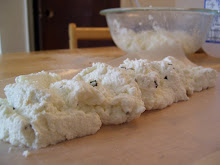
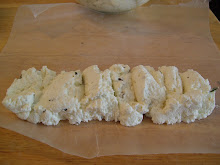
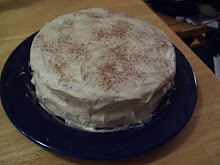
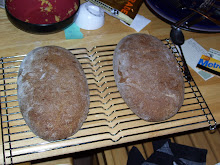
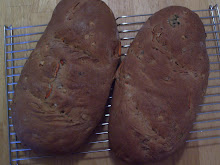
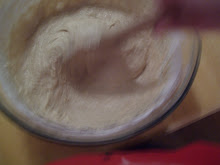
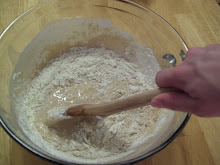
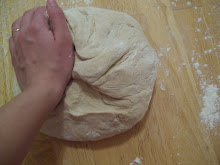
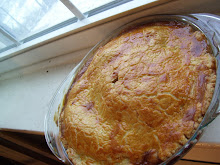
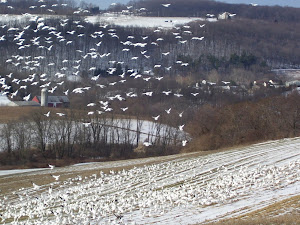

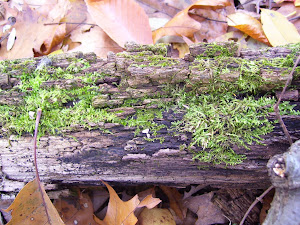
No comments:
Post a Comment